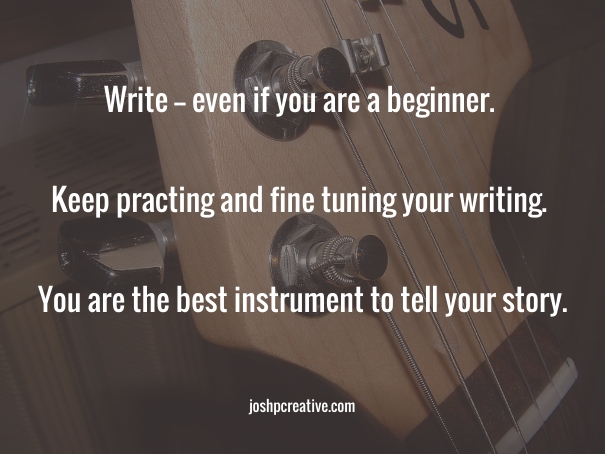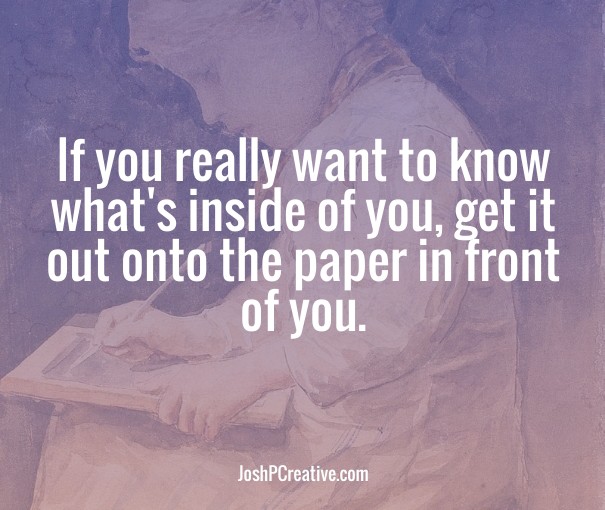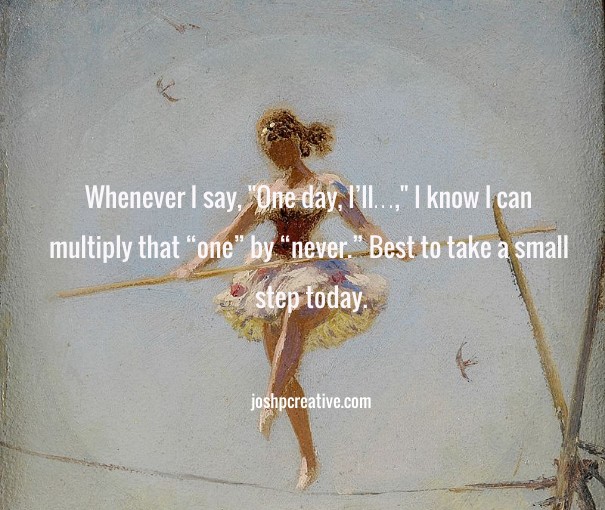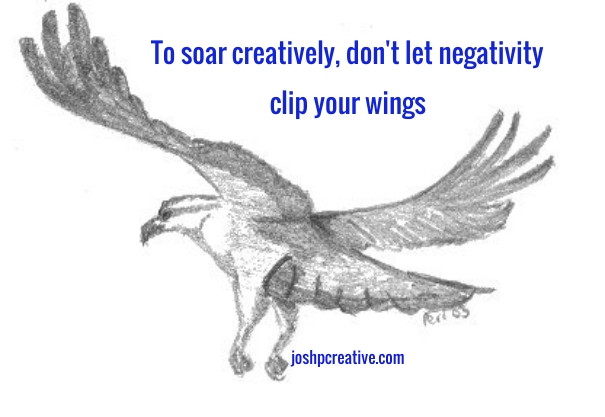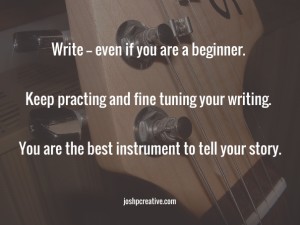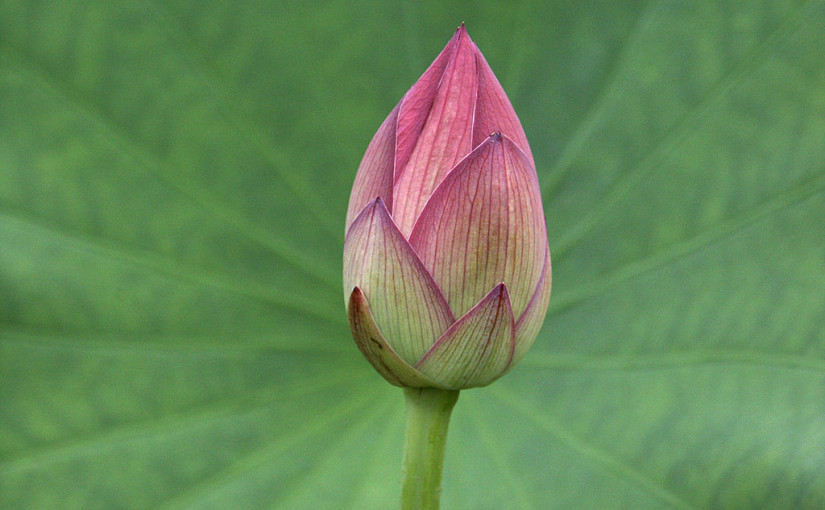Category: Inspiration
I Wonder if Socrates Kept a Journal…
While scouring the web this past weekend for some book research, I came across some of Socrates’s musings, and it got me thinking again about the good life. What is it? Why pursue it? What impedes it? And, I realized something very important: one blog post can’t answer all those questions.
So I won’t try.
However, I thought about my history and my pursuits and realized that I have been asking and answering those very important questions throughout my life, whether or not I knew it. In fact, I was asking (and answering) them even before I knew who Socrates was.
You see, scribbling words has been an outlet for me for years, and when I took some time to reflect on the contents of some of my journals and papers, I realized so many of them are about working out what I value and what I want from life. Even my own “ancient” writings (y’know, from middle school and whatnot) describe the things I liked and disliked. Some entries dealt with people, some with food, and some with plants and animals. I took a look at the things about which I chose to write, and it was powerful insight into the things I value today.
As I take stock of life moving forward–as a person and as a writer–I am astounded at how the events of the past have conspired to drive me towards a clearer vision of my purpose. The things I embraced and the things from which I turned away have all had a profound impact on me and have delivered me to this place, this post, this very moment.
If you want to know where you stand personally, or what you truly value, then investigate. Get a pen and a piece of paper and write about it. Reflect on the things you love and the things you’d prefer to leave behind. Write out your personal history and let it instruct you. Take stock not only of what you write, but also of what is left unwritten.
You see, the answers to life’s toughest questions are already inside of you. All you need to do is ask the questions and let the craft of writing take the lead as you search for answers.
If Socrates were in my office right now, I think he’d agree: when it comes to discovering what we value, the best place to start is with questions. And perhaps the best way to get those answers is with a pen, paper, and a willing heart.
Just a Little Creative Reminder
Just a little reminder. You really are the best instrument to tell your story.
On Star Wars Day, May the Fourth (Draft) Be with You
So it’s May 4th. As any Star Wars fan will tell you, this is Star Wars Day. Why? Because…well…MAY THE 4TH BE WITH YOU! Get it? Get it? “Fourth” instead of “Force.”
Clever!
I love Star Wars. I’m not sure why, but it probably has to do with the whole “out of nothing, a great one rises” hero’s journey archetype thing and all that jazziness. There’s something exhilirating about a (spolier alert) hero who rises (literally) from the dust of his home planet to take on the scourge of the Empire.
You can actually see that saga continued in the new Star Wars VII: The Force Awakens. I did. Twice. In the theater.
Anyway, I just wanted to give a piece of advice on this Star Wars Day 2016: never stop writing. That’s a common theme on this blog, because I am well aware of the doldrums that can hit when we are working on a new book. We start. We write. We ramble along. And then, somewhere in the mix, we have the tendency to put the whole thing in a drawer and forget about it. We lose the force, as it were.
But on this day, we say, “May the 4th be with you.” And you know what? Today, we can take that to mean that it’s the fourth draft that will be the key. I know, I know, it’s a stretch, but as with any religious holiday, we have to go beyond the obvious trappings and find the deep meaning.
I edited my first book over 15 times (with two readers). The second? Probably almost 20 edits (with four readers). It was probably more. A lot more. But I’ll be conservative. Each edit gets the juices flowing in new and exciting directions. Each edit got me past a problem or insecurity. Each edit a new saga. Each tweak a new way to connect with the writing force that’s a part of each of us.
So today, on Star Wars day, fight the good fight against the dark forces of procrastination. Fight the Darth Vader in your head that tells you you’ll “never” or you “can’t.” Resurrect a draft from the ashes and take on the empire of writer’s block. Be the author who rises from the ashes and finds greatness!
At least until that next edit comes along.
In the meantime, live long and…oh, wait…right…
May the 4th be with you.
Take the Creative Step Today…
Don’t just wait for “someday.” Be your best creative self today! What’s the smallest step you can take to get an idea off the ground?
How 10,000-Year-Old Cave Lion Cubs Helped Me Thaw Out My Own Creativity
Ever heard of cave lions?
Me neither.
However, I ran across an article by Jeva Lange at The Week, and suddenly, I’d heard of cave lions. Apparently 10,000-year-old cave lion cubs were found almost totally intact in Siberia. Perfectly preserved specimens of a lineage now extinct. And that got me thinking about writing. About creating. About the ebb and flow of creative ideas as they move (or don’t move) through our lives.
Consider these cave lions. They had a life. A narrative. A story in progress. But then? Well, that life was put on hold. Literally, put on ice. And for thousands of years, as the story of earth unfolded around them, they stayed frozen. But then, the story of human exploration and the story of the cave lion cubs intersected, and now their journey will continue. Not only will it continue, but it will help to write stories for generations of scientists to come.
All this prompted me to revisit some story ideas I’d been kicking around in my head years ago. I guess somewhere along the way, these ideas got lost. Frozen in time. These story stems became trapped under the snowdrifts of time, waiting for the day they might be uncovered again.
And then it happened. I actually started to flesh out some ideas on these old themes, and I’m pretty happy about where they might lead creatively.
You see, sometimes an idea we have feels right for our time in life. Very much in its element. However, for some reason, it gets lost. Stuck. It waits patiently for us to unearth it so that is can once again continue the journey. Instead of ignoring old ideas when something in us unearths them, perhaps the better approach is to dig a little. Explore a little. See if we can bring new life to something that seemed so cold and lifeless.
If you feel stuck or frozen, or even if you just have a bit of the idea explorer in you, try this exercise:
(1) Right now, no time to prepare, think of something fun from your past. RIGHT NOW! Got it? Good. Don’t judge it.
(2) Now, see if you can construct meaning around it. Investigate how that random, silly memory may have informed your present. Construct a new narrative around that memory. Bend it. Shape it.
(3) Type out the memory and your new story, and save it somewhere where you can come back to it. (But for now, let it go.)
The point of this exercise isn’t to get you to write the next great American novel because you recalled a story about sliding around on the ice in front of your house in Ohio because your dad decided to make a homemade ice rink and he almost slipped and hurt himself while you and your brother laug…wait…that’s my memory. Anyway, the point of this exercise isn’t to make you famous. It’s to show you that you are a storehouse of images. A waystation of wanderings. A vault of vestiges.
You have ideas and memories frozen inside of you, waiting for the story to come back to life. You never know which one will someday find its way into your ongoing story.
Stay open and explore. The results may just change the generations.
What memories came to your mind? What happened when you explored?
A Reminder: Soar Creatively by Tuning Out Negativity
We posted about soaring high a while back here at joshpcreative. Essentially, the message was: if you want to soar creatively, don’t let others bring you down with their negativity.
As the days and months of your writing and creative pursuits progress, this becomes more and more imperative to remember. I’ve had some conversations with some folks lately about their creative endeavors, and I just wanted to post this little reminder.
Be brave. Be courageous in your creations. Soar high. Listen to those who want the best for you, but try your best to tune out the negativity.
Just a friendly reminder.
You Are the Best Instrument to Write Your Story
To Soar Creatively, Don’t Let What Others Think Clip Your Wings
You have ideas. You have stuff you want to get out there. You have stories to tell and things to share. In other words, you have the ability to think. And that thinking is what gives wings to all this wonderful inner-world beauty of yours.
However, there is this thing that happens. We start to share our fledgling inner beauty with others and they start to weigh in. Sometimes this can lead to great conversation and insight, but other times, there is negativity involved (rejection, doubt, and “suggestions” meant to hijack our thoughts).
We started to grow wings, yes, but then negativity clipped them and now we’re stuck on the ground.
See, I started considering all of this recently when I followed a thread on a popular social networking site. A well-meaning person asked a well-intentioned question, and she got all kinds of good advice. This person was thinking about something and other people shared their thoughts on her thought.
But then? Well, then the trolls stepped out from under the bridge and started to attack her thoughts. Violently. Angrily. As the comments scrolled on and on I could see that these negative attacks caused a slipping of momentum. A drag on progress. Just when this woman was starting to take flight, someone would try to pull her down.
Fortunately, the community was strong enough to overcome this, and success happened, but wow….
You see, the ability to think is what gives our ideas wings. The ability to tune out what others think gives us the power to soar. Consider that the next time you create. All the criticism in the world does not take us into the clouds. Taking on others’ thoughts and holding on to them only weighs us down.
Rather, it is our ability to hear, consider, and let go that keeps us light. Keeps us focused. Keeps us free.
Listen to those who have good advice on how to fly straight and true. Hear out those who want your journey’s success. But never ever be grounded by those who have the ability to criticize, but not the courage to fly.
How To Be Creative With Less Karma
Just One Talk on Karma
I was listening to a talk the other day about karma by a teacher named Paramahamsa Nithyananda (Paramahamsa is a Sanskrit-language honorific title for one who’s achieved enlightenment; I can’t verify Nithyanandaji’s status, but am only reporting on the content of the talk).
It was quite interesting, actually. Nithyananda said that our karma is not really about our actions, but our thoughts. So, as he says, if you fight with someone, it’s not the actual fight that counts karmically. It’s the fact that you engaged the thought of fighting (that brings about fights).
Karma Is All in Your Head
In other words, it’s all in your head folks! That runs counter to a lot of schools of thinking on karma that suggest it’s your actions that bring future consequences (not thoughts). According to Nithyananda, we surf thought currents, and these currents of thought (not action) bring consequences.
For instance, we have some thoughts and thought currents that create nothing in our reality (or just make us miserable in endless loops). These could be considered “bad” karma. Sometimes, however, we have thoughts that create some positive in our reality. Sounds pretty good, right? Well, that could be considered “good” karma.
However, he went on to say that even the things that create some of our reality, and could be “good” karma, can actually have unintended consequences for us down the line. Things that can bind us. He uses an interesting analogy: say you put your thought energy into getting a house. And you get it! You made it! But now, you’ve bound yourself to a mortgage and other issues. So, you achieved something and made it a reality, but now there could be other issues (busted plumbing, loud neighbors, expensive insurance, leaky roof, the need to move, etc.).
Houses and mortgages aren’t “bad.” I don’t think that’s the suggestion here. I think it’s part of a bigger warning about being careful what we wish for, and going in with our heads up. In other words, what we think may be good may have other issues, and we need to be aware and ready! We can get stuck in the quest for good as easily as we can get jammed up behind the desire to avoid bad.
Nithyananda suggests that instead of getting involved with thought currents of any kind (good or bad) the best we can do is stop engaging thinking! That’s right. Bring ourselves to a place where we don’t play endlessly with this thought or that thought. Strive for a quiet mind. In that space, all of our reality will be clear, and that is enlightenment.
It’s interesting to say the least. I can’t describe it all here. It’s too long. But you should check out the talk if you’re interested.
Karma and Creativity
Anyway, all of this talk on karma and thinking got me thinking (uh oh) about the question, “How does this relate to creativity?” We’ve been writing a lot here about writer’s block and busting through that, and then this talk on karma comes along.
I think a lot of what Nithyanandaji said, rings true. When I sit with a manuscript or other piece of creative work, and I get involved in thinking too much, I become paralyzed. Maybe the thought process goes like this:
“Will what I’m writing sell?”
“Will anyone want to read this?”
“Can I write fiction and non-fiction in the same lifetime?”
“Is this a waste of time?”
“Did I leave the iron on?”
“Do people iron anymore?”
You see, much like you, I surf waves of thought over and over until I have created nothing in my reality (or on my page). It’s a spiral. A completely counterprodutive spiral.
Perhaps the better approach is this:
“I’m going to write today, come what may.”
And leave it at that. You see? Instead of engaging the myriad of thoughts that threaten to derail me and pull me into a cycle of creative despair, I release myself to simply be present for whatever comes to mind. Instead of wishing and hoping for “good” to come of what I’m writing, I simply sit down to do it because it’s there to do.
I let the process be the process, and I don’t sprinkle in my doubts or hopes.
It just is.
It’s not about selling a manuscript or writing the perfect article. That’s the stuff of thought and karma. Instead, it’s about simply being available for whatever shows up so that I can create the one reality I prize above all: being creative in this moment.
That, my friends, is the most karma-free reality I can imagine.
